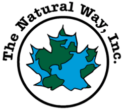The Natural Way is a family orientated business which operates as a team. We are committed and dedicated to building a diverse and inclusive workplace empowering our employees to become the best they can be through training, education, providing health care, and a variety of other benefits. Through these programs and benefits we attain long term employee retention of a diverse set of people from differing backgrounds. We provide support for all our employees not only in professional aspects but in their personal lives such as child care, housing, budgeting, and mental health. Our company is proud to have employed people of various religions, races, ethnic groups, disabilities, and orientation. We are committed to various charities and building community through our positive and proactive culture of inclusion, support, and compassion.
